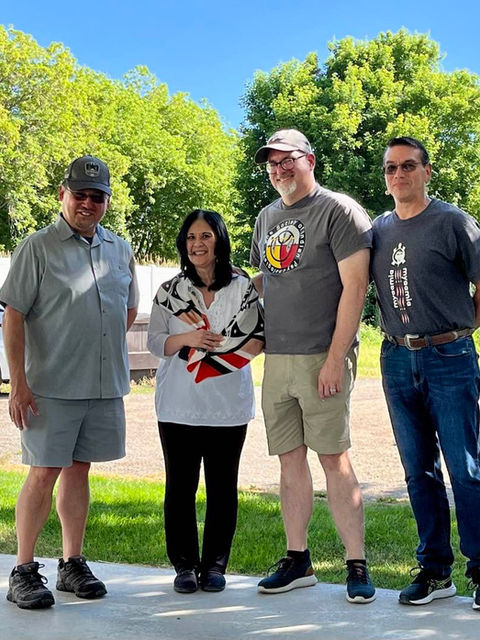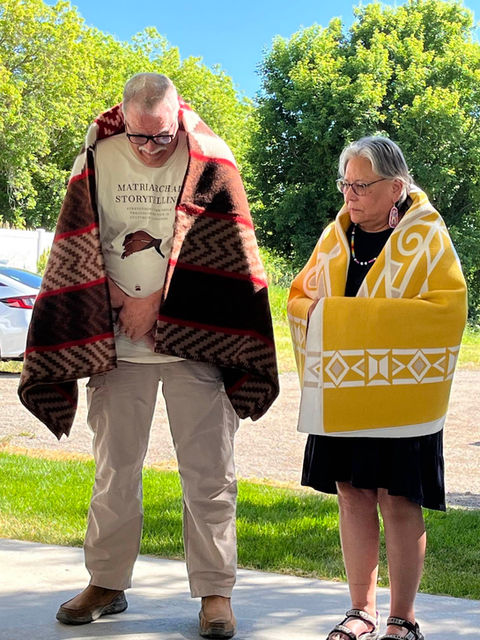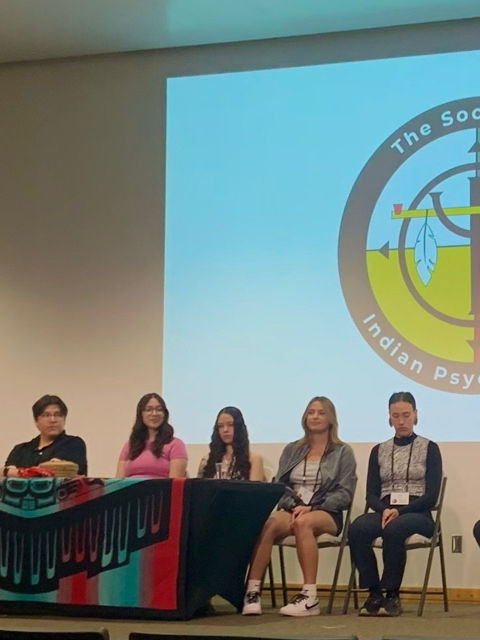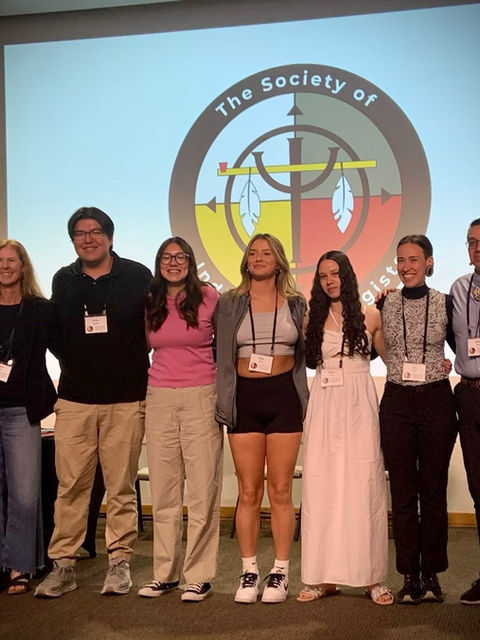
End of Year Message from our SIP President
🍂 Happy New Year 2026 from the Society of Indian Psychologists 🍂
As we welcome 2026, SIP extends warmest wishes to our members, partners, and the communities we serve. This new year brings renewed commitment to advancing psychological science, culturally grounded mental health care, and equitable access to health services for Native and Indigenous populations.
We enter 2026 with optimism and purpose. Across the nation, the field of psychology continues to grow in its capacity to support holistic well-being across the lifespan, integrating traditional knowledge, contemporary research, and innovative practices that honor cultural strengths and resilience.
In the broader landscape of mental health and healthcare coverage, several federal policies and regulations taking effect in 2026 have important implications for our work and our communities:
Strengthened Mental Health Parity Protections: New federal rules under the Mental Health Parity and Addiction Equity Act (MHPAEA) continue to roll out in 2026, requiring health plans to ensure that mental health and substance use disorder benefits are no more restrictive than medical and surgical coverage. These provisions apply to both group and individual plans beginning in the 2026 plan year, supporting fairer access to care for diverse mental health needs. (To learn more click here)
Healthcare Marketplace Standards: Federal standards for the Affordable Care Act (ACA) Marketplaces in 2026 aim to improve transparency and consumer protections, making it easier for individuals and families to understand coverage options and enroll in plans that support their health and well-being. (To learn more click here)
Evolving Federal Coverage Rules: Some changes to federal benefits programs in 2026, including adjustments to covered services and plan requirements, emphasize the dynamic nature of healthcare policy. We recognize the importance of monitoring these shifts to anticipate impacts on access to culturally competent mental health care and advocate for inclusive, equitable coverage.
As psychologists, clinicians, researchers, educators, and advocates, we are poised to navigate these regulatory changes with integrity and insight. In 2026, let us continue to champion mental health equity, expand culturally responsive services, and contribute to policy dialogues that uphold the dignity and well-being of Native communities.
Together, we build resilient futures, grounded in culture, informed by science, and guided by compassion.
🌿 Happy New Year 2026! 🌿
Federal Regulations you may have missed for 2025
Turquoise Alert: Arizona's Commitment to Missing Indigenous PersonsIn a significant legislative move, Arizona has passed House Bill 2281, establishing the "Turquoise Alert" system for missing Indigenous persons. This alert system, named in honor of 14-year-old Emily Pike, aims to raise awareness and expedite responses to cases involving Indigenous individuals. It's a step toward healing and justice for families and communities affected by such tragedies.
With the introduction of new legislation limiting EDI programs, experts are shifting toward inclusion-focused approaches to ensure support while balancing diverse needs. Leaders like Tabbye Chavous, PhD, emphasize the ongoing importance of EDI in promoting equitable access and success. Ella F. Washington, PhD, notes that EDI initiatives have faced fluctuations in support over the years, encouraging organizations to stay consistent in their commitment.
To explore more about how EDI efforts are evolving, visit the APA website.
Updates: The Centers for Medicare and Medicaid Services (CMS) released the CY2025 Physician Fee Schedule Proposed Rule on July 10, 2024. Find more info: https://www.apaservices.org/practice/reimbursement/government/cms-federal-rule
Medicare changes in 2025. The final rule on the 2025 Medicare physician fee schedule brings some good news for psychologists and aims to increase access to behavioral health services. https://www.apaservices.org/practice/reimbursement/government/2025-medicare-changes
Extensions of telehealth access options. https://telehealth.hhs.gov/providers/telehealth-policy/telehealth-policy-updates
Mental Health Parity and Addiction Equity Act Final Rules (“Final Rules”) Are Released: Plans and Issuers Must Prepare for January 1, 2025 Effective Date (US). Find more info: https://www.triagehealthlawblog.com/hhs/mental-health-parity-and-addiction-equity-act-final-rules-final-rules-are-released-plans-and-issuers-must-prepare-for-january-1-2025-effective-date-us/
JANUARY RELATIVES' HIGHLIGHTS
THE YEAR 2026
For allies, agencies, organizations, and groups looking to produce a Land
Acknowledgment, we would like to share and amplify existing resources developed by
the Native Governance Center. We would like to urge interested parties to review in its
entirety the Indigenous Land Acknowledgement Guide.
This guide takes you through some steps to developing a thoughtful, respectful, and well-
researched land acknowledgment.
Most importantly, we urge interested folks to take time to review the Beyond Land
Acknowledgement Guide.
This resource outlines some problems with land acknowledgements, including
asking Indigenous collaborators to develop the land acknowledgment, careless or
limited research to inform the statement, and a focus on verbiage and optics rather than
steps towards tangible allyship. This guide then walks readers through developing a
meaningful action plan for Indigenous allyship that moves beyond land
acknowledgment, including a self-assessment and action planning worksheet.
Updated March 27 2025 by Brian McNeill, Ph.D. (Nez Perce and Palouse)

Dear Friends and Neighbors
Our hearts go out to you in this difficult time after the devastating impact of the typhoon in western Alaska. We know many of you are facing immense loss, damage to homes, loss of belongings, disruption to your community routines and livelihoods. Please know that you are not alone.
In the days ahead, please take every step you need to keep yourself and your loved ones safe. If you are displaced, seek shelter, stay connected with family and community, and reach out for help when you need it.
We also want to share some trusted resources that are actively supporting those affected. Whether you need emergency shelter, emotional support, financial assistance, or help navigating what comes next, there are organizations ready to assist. Helpline Offers Immediate Crisis Counseling to People Affected by Alaska Typhoon.
You are strong, you are not forgotten, and you will rebuild. If there is anything we can personally do, help coordinate, listen, advocate, please don’t hesitate to reach out.
























